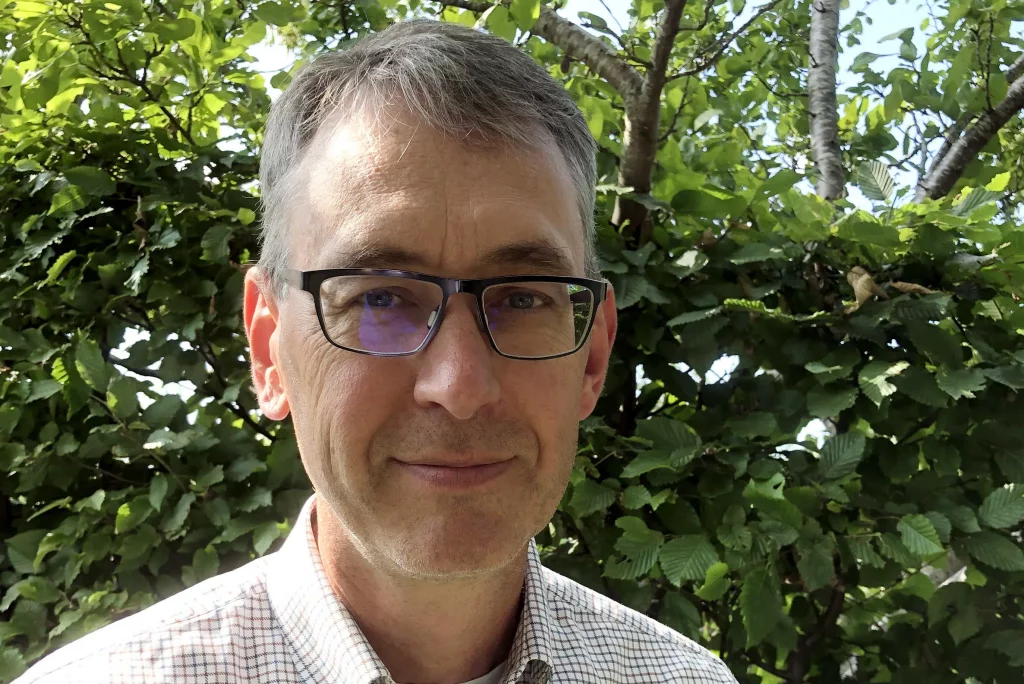What threats and opportunities are there in the green social transformation that Boden is implementing?
This is something that a group of researchers wants to try to find out
“The positive crisis”.
These were the words that caught Anders Larsson at the Swedish University of Agricultural Sciences in Alnarp and Daniel Urey at the think tank Lablab. The words were written by Boden’s municipal councilor Claes Nordström, who in a debate article explained the great challenges that the municipalities in northern Sweden face in connection with the green social change and the major industrial establishments.
The message was clear. The municipalities in northern Sweden need help from the state to implement the enormous investments it entails and for the benefit of the whole country as the establishments will lead to both jobs and tax revenues.
Anders Larsson, who is a senior lecturer at the Department of Landscape Architecture, Planning and Administration, saw that there were many issues that were in line with his research area and began to look more closely at the circumstances.
Together with a project group with representatives from Chalmers University of Technology and Lablab, a think tank that focuses on issues related to research in community planning, communication and GIS issues (geographic information systems) with a focus on energy conversion and landscape, they are now conducting a small feasibility study of the the green social change in Boden to see if it can lead to a larger project.
– We have been received in a fantastic way and received a broad overview of what is going on in Boden and what the municipality is doing today. What fascinates me most is how fast everything goes and it greatly affects our planning when it comes to applying for a research project, says Anders Larsson.
 Anders Larsson, SLU Alnarp. Photo SLU Alnarp
Anders Larsson, SLU Alnarp. Photo SLU Alnarp
In normal cases, it can take several years before the financing for a major project is secured, but after the meeting in Boden, it is clear that they do not have that time. By then, the change has already taken place.
Now the feasibility study will be reported and then the group will try to find short-term and long-term solutions to be able to follow the green transition in Boden at the same time as it takes place.
– It would have been very interesting to be able to collect data along the way and see how it develops. We think that this will certainly happen in more places in the future, both in larger and smaller towns. Then it can be useful to have data from someone who has already made the same journey, says Anders Larsson.
He sees this experience as a challenge right now. But then it’s about another form of travel. Namely how the state distributes financial resources and how the distribution system may slow down the green transition in Boden and the regions in northern Sweden.
In some countries, natural resources, such as minerals, are owned by the regions or the municipalities themselves, but in Sweden it is the companies that own the natural resources and therefore the municipalities become more dependent on the state to manage larger investments.
– In Sweden, for example, wind power companies do not have to offer the local population any co-ownership at all, while the local population in Denmark has the right to buy at least 20 percent of the wind turbines. On an international scale, Sweden is far out at the end where little goes back to the local communities, says Anders Larsson.
Another example he highlights is Switzerland, where the countryside is seen as nourishing and the city consuming.
– There the cantons own their resources. In Sweden, we have a system where resource flows go from the countryside to the cities, where companies have their headquarters. On top of that, we must have a regional distribution policy, which might have been unnecessary if the local communities had greater ownership to begin with. Maybe funds would then have had to be redistributed from the countryside to the cities?
– When they were to redo the regional planning system in Switzerland, they also enlisted the help of planning experts from other countries before making decisions. The same thing might need to be done in Sweden, given what is happening in northern Sweden right now.